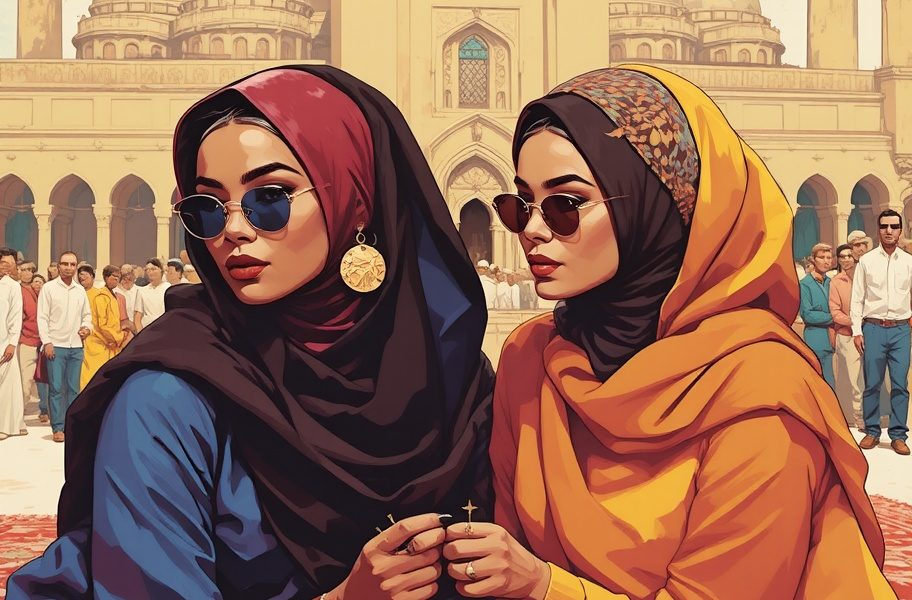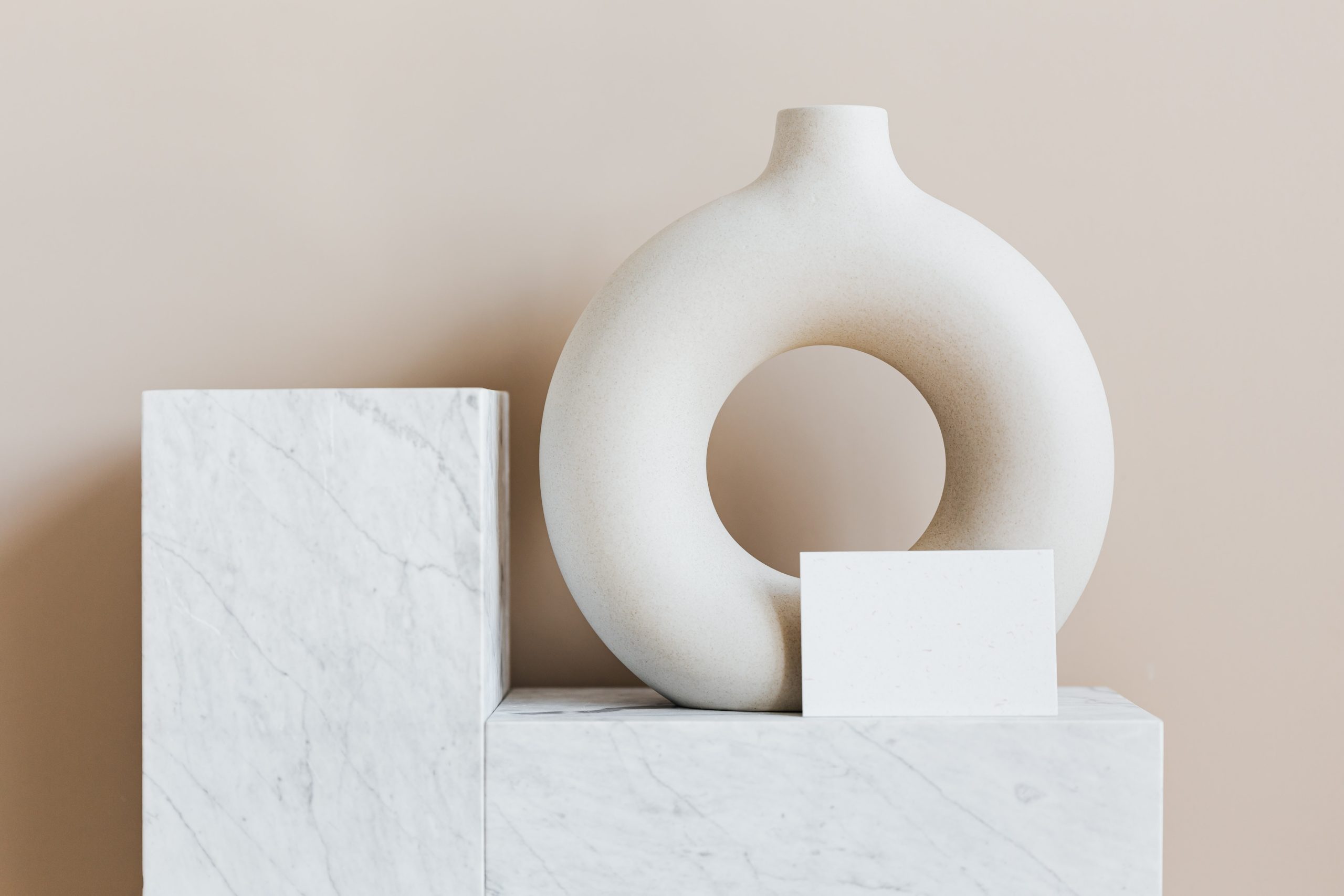My earliest Eid memories were of waking up to chants of the Takbir at dawn, post-fajr. We would have pap and àkàrà for breakfast and get dressed for Eid prayers. Every Sallah, my siblings and I got new Eid clothes down to our underwear. I remember how my parents would dress us all in matching fabrics, the girls on ìró and bùbá with large ìbórùn and exquisite jewellery to match while the boys would wear kaftan and cap.
Eid days were always the happiest. It meant there was going to be a party; that our cousins would be visiting and that we would have our non-Muslim neighbours feasting with us. The air was electric with excitement, filled with the scent of delicious food and the sound of lively chatter. We would play games with all the visiting children and receive owó ọdún from the elders upon greeting their homes with “coolers” and trays of food.
My mother’s face would light up with laughter as she reunited with friends and siblings in our large Lagos home under the shade of what we used to call our beloved “Christmas” tree. My mother and her friends would dress to impress, adorned in stunning gèlès and jewellery, each one bringing a juicy story to share.
As they supervised the olópòs from a distance, their warmth and hospitality made every guest feel welcome. The next day, we would in turn, visit other families, organize a picnic or visit fun places with other families in a car convoy. Right now, I can feel my heart expand in nostalgic joy at all the beautiful memories frozen in time.
But my university days brought a startling revelation. I discovered that Eid evoked vastly different emotions in others. In my hostel, I listened in shock as friends shared stories of Eid with their families. For them, it meant travelling to their fathers’ ancestral homes, where their mothers and other wives were expected to cook, clean, and serve. It broke my heart to hear tales of family politics, rivalry, and heartache.
These girls never experienced the carefree joy of Eid that I had known. Instead, they remembered feeling sad, watching their mothers being treated like servants.
Since then, I’ve heard countless stories from around the world, of the unequal burden Eid places on women. These women, forced to pretend joy, silently bear the weight of tradition. Centuries-old customs dictate their roles, leaving them no choice but to conform.
One subtle but important detail, however, that I picked up from these conversations was that the highly-educated women or those from high-income backgrounds were not subjected to this treatment in the family houses back home. They were, in fact, exempt from the unfair expectation and burden. A sad reality that reveals that while this is a cultural issue, it is as much a socio-economic issue for women.
I felt grateful for my own sheltered experience. My family never travelled to my father’s ancestral home for Eid and my mother never had to do any domestic labour on a festive day, sparing me the hardships others had endured. Hearing these stories, I realised how fortunate I was to have been shielded from the pain and drudgery that Eid meant for so many women.
Reflecting on my own privilege, I’ve come to realise that Eid experiences vary greatly across geographical and socioeconomic lines. While some women can hire cooks for festive seasons, many others can’t afford this luxury. I’ve heard women on Twitter argue that the best option for women is to hire cooks during festive seasons. But this ignores a painful reality; that not every family can afford to hire a cook. What about women from low-income families, who bear the brunt of disproportionate labor during celebrations? Shouldn’t they, too, be able to enjoy Eid without the weight of unpaid domestic work?
What would the world look like if everyone, regardless of gender or socio-economic status collectively got their hands dirty? How hard is it to imagine a world where unpaid domestic labor isn’t unfairly shouldered by women. A world where women across class divides can genuinely revel in the joy of Eid, just like everyone else.
Lately, we’ve been talking about self-care and how it’s very much a feminist issue for women, especially in a world that feels entitled to women’s unpaid labour. We have, however, not paid attention to how much self-care is being co-opted by capitalist institutions, further making it a “luxury” that only the rich can afford. If self-care during Eid, for example, means spa days, hired cooks and lavish celebrations for upper and middle-class women, what does self-care mean for low-income women? Who caters to the wellbeing of these women?
These are important conversations for Muslims to have. We can’t have our religious festivals built on the backs of exploitative traditions disadvantageous to women. Self-care for women across socio-economic lines should look like collective resistance to systemic structures of oppression, rooted in equity and social Justice. In a society where women’s unpaid work, be it reproductive or domestic are deemed unproductive, we owe it to ourselves to speak up for inclusive change; one that not only caters to the upper and middle-class, but is equally felt across socio-economic lines.
The Qur’an reminds us that “The believing men and believing women are allies of one another. They enjoin what is right and forbid what is wrong.” (Quran 9:71)
A reported saying of the Prophet (PBUH) also emphasizes unity, mutual support, and the prohibition of harming or abandoning fellow Muslims. It tells us that “The believers in their mutual kindness, compassion, and sympathy are just like one body. When one of the limbs suffers, the whole body responds to it with wakefulness and fever.”
It is our collective responsibility, therefore, as Muslims to dismantle these traditional structures of oppression. It starts with our individual efforts, speaking up against injustice in our families, in our communities and our masjids. Whether it is in organising all-inclusive community Eid parties that cater to everyone, individually inviting lower-income families to celebrate with us, or even planning women-exclusive bonding events with lots of foods and gifts for women across socio-economic divides, every little effort makes a difference. If we all changed these traditions at the micro level in our families, we would soon witness a massive change at the macro level, that brings genuine happiness to every member of our Ummah.




